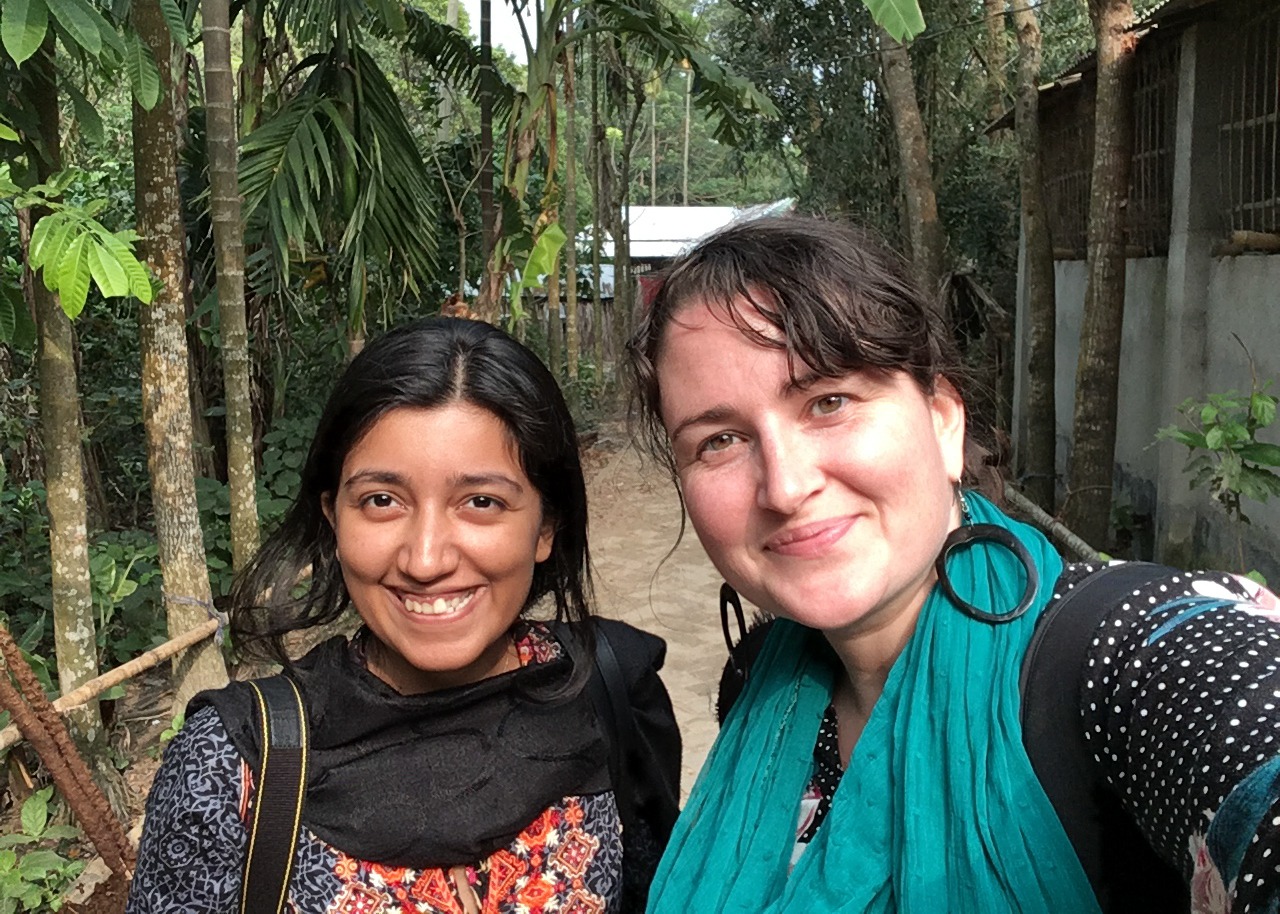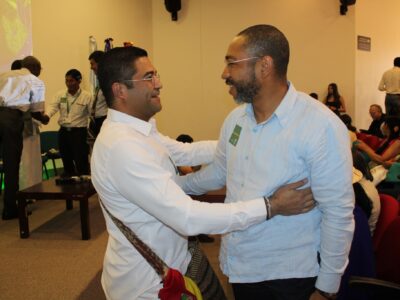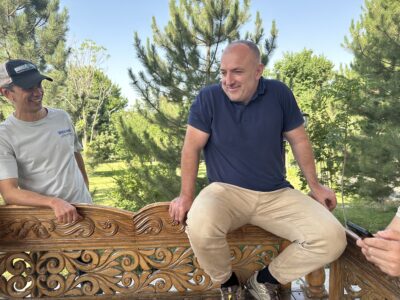
Jini Kades served as a 2019 to 2021 fellow with the Congressional Hunger Center’s Mickey Leland International Hunger Fellowship. She completed her first year as a Leland Fellow in Dhaka, Bangladesh, where she supported two Feed the Future activities implemented by ACDI/VOCA: The Feed the Future Bangladesh Livestock Productivity for Improved Nutrition Activity and the Feed the Future Bangladesh Rice and Diversified Crops Activity. Now based in Washington, D.C., Jini shares her experience as Leland Fellow below:
Q: Why were you interested in becoming a Leland Fellow?
A: After I finished grad school, I was looking for a way to break into international development. I honestly cannot remember where I first learned about the Leland Fellowship program, but somewhere along the way I signed myself up for a virtual information session, and from there I was hooked! I like the Congressional Hunger Center’s unique approach to capacity building through carefully designed fellowship placements and their support of critical, analytical thinking in development.
Q: What was it like supporting Feed the Future activities in Bangladesh? What was your role?
A: The teams in Bangladesh are outstanding, and I feel fortunate to have been able to work so closely with those projects. Although I was in Dhaka for only four and a half months and was just getting my footing when COVID-19 hit, it was very rewarding and what I learned was immeasurable. I contributed to reports, conducted farmer interviews, and helped create promotional materials as well as participated in a variety of activities, including regional stakeholder workshops and the NutriChamps cooking competition.
Q: How did things change when the COVID-19 pandemic hit?
A: Back in the U.S., I’ve been able to continue working with the teams, and that work has definitely been enhanced by my time in Bangladesh. The start of my second fellowship year was moved up by a few months due to the pandemic and took place mostly from my home office/bedroom in Richmond, Virginia. But with this extra time, I’ve had the chance to work across projects in several countries and work with ACDI/VOCA’s technical and monitoring and evaluation teams to provide analytic support — from gender, youth, and social inclusion strategies and nutrition assessments to the 2020 Annual Impact Report.
Q: What did you enjoy most about the fellowship?
A: The network of incredible people at both ACDI/VOCA and in my Leland cohort is definitely the most important part of my experience of the past two years. Regardless of my next steps, I am forever grateful to my time as a Leland Fellow and hope to build on the connections I’ve made to this point!
Q: On August 6, you presented at a virtual event for the Congressional Hunger Center about measuring market health and resilience for food security. What were some of the biggest takeaways you shared?
A: I did my best to synopsize market systems to an audience with mixed backgrounds on the subject, but the key takeaway was that problems like global food insecurity and economic instability are incredibly complex and deeply rooted in constantly changing cultural, political, social, and economic systems. Any solutions to those problems must begin with an understanding of those systems. ACDI/VOCA has developed several tools and methodologies for visualizing and explaining those complicated systems, like the Market Systems Diagnostic, that can and have been used in several projects to more effectively work toward greater food security and market resilience.
Q: How do you think development professionals like yourself can start to make the industry more effective and more just? What needs to change?
A: Much easier said than done, but I think taking time to step back and honestly reflect on the impact that your work is having — both in the present and the long-term — is critical to making sure that the development industry is doing more good than harm. There are countless ways to evaluate one’s impact, but the first step is actually deciding that it’s important and making it a priority, which needs to happen at every level, from entry-level employees of NGOs and CEOs of donor organizations to elected officials.
Comments




